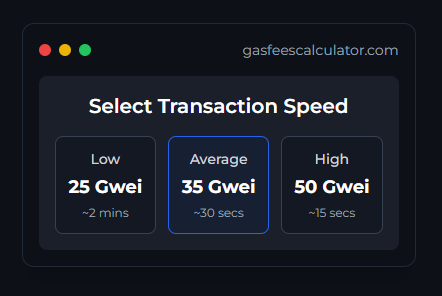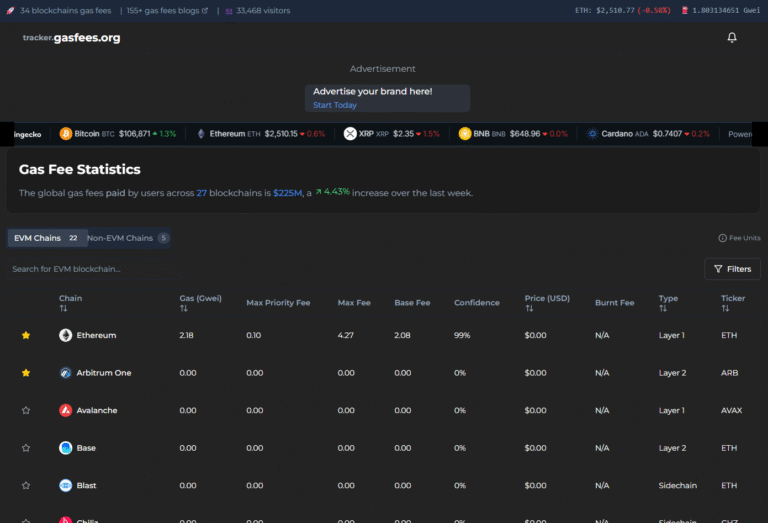Tips for Managing High Gas Fees
High gas fees can be a significant headache when dealing with blockchain transactions, especially during peak times or high network congestion. Here at GasFees.org, we’ve compiled some strategic tips to help you manage and, hopefully, minimize those fees:
1. Timing is Everything
Avoid Peak Hours: Gas fees spike when many users are active. Use a gas fee tracker to identify quieter times, often late at night or early morning in your timezone.
Monitor Blockchain Events: Be aware of scheduled events like token launches or major DeFi updates that could increase network load.
2. Use Gas Price Oracles
Set Gas Prices Intelligently: Tools like EthGasStation or our own Gas Fees Oracle provide real-time suggestions for gas prices that balance speed and cost. These oracles can help you set your transaction fee at a level that’s likely to process quickly but at a reasonable cost.
3. Layer 2 Solutions
Migrate to Layer 2: For Ethereum users, moving transactions to Layer 2 networks like Optimism, Arbitrum, or Polygon can dramatically reduce gas costs. These networks handle transactions off the main Ethereum chain, reducing the load and thus the fees.
4. Batch Your Transactions
Combine Actions: If you’re executing multiple blockchain interactions, consider batching them. Instead of sending separate transactions, you can group actions into one. This not only saves on gas but also simplifies your transaction history.
5. Optimize Smart Contracts
Gas-Efficient Coding: For developers, writing smart contracts with gas efficiency in mind can lower fees for users. Techniques like using for-loops sparingly, optimizing storage access, and minimizing on-chain computations pay off in the long run.
6. Leverage Gas Fee Prediction Tools
Anticipate Fee Fluctuations: Tools like GasNow or our predictive analytics can give you an idea of where gas prices are heading, allowing you to plan your transactions around these predictions.
7. Use Gas Refund Services
Post-Transaction Refunds: Some platforms offer to refund part of your gas fees if the transaction was successful. This isn’t common but can be a boon when available.
8. Consider Alternative Blockchains
Explore Other Networks: If you’re not tied to a specific blockchain, consider using alternatives like Binance Smart Chain or Solana, which often have lower transaction costs. However, remember to assess the security and decentralization of these networks.
9. Employ Gas Token Strategies
Chi Gastokens: Using tokens like CHI, you can “store” gas at lower prices and use it during peak times, potentially saving money.
10. Educate Yourself and Others
Spread Awareness: Understand how gas fees work through resources here on GasFees.org. Educating yourself and your community about gas fee dynamics can lead to collective strategies for managing costs.
11. Long-Term Planning
Stake or Delegate: For those holding significant amounts on networks like Ethereum, staking can be a way to offset gas fees through staking rewards, or you might delegate to a pool that absorbs some gas costs.
12. Use Transaction Batching Services
Third-Party Batching: Some services offer to batch transactions for you at a lower cost than if you did them individually. Research these services carefully to ensure they are trustworthy.
13. Stay Updated
Follow Gas Fee News: Blockchain technology evolves, and so do the mechanisms for handling gas fees. Keep an eye on developments that might introduce new fee management techniques or blockchain upgrades aimed at reducing costs.





